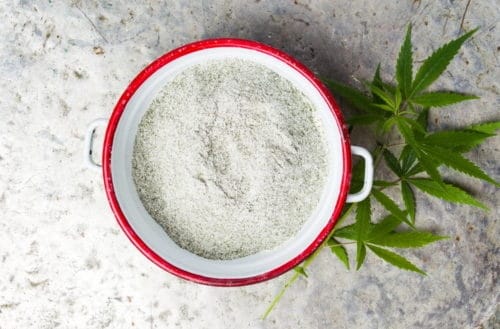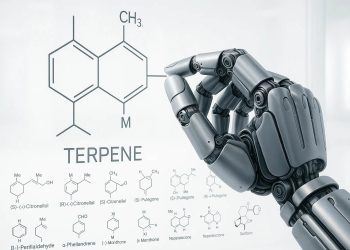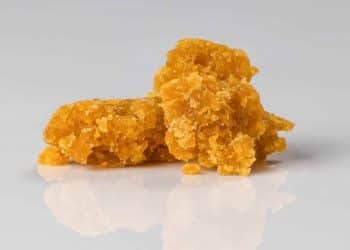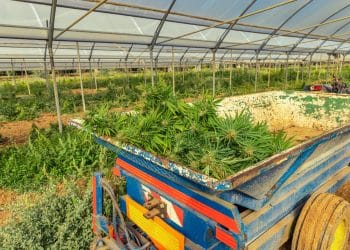One doesn’t have to look hard to see that cannabidiol (CBD) is booming. From strip malls to gas stations to health shops, CBD products can be found just about anywhere these days. For many consumers, an unfortunate reality of the CBD boom has arisen — not all products have proved to be equal.
In a recent study that aimed to establish the veracity of 84 CBD products from 31 companies, it was found that 26% (22 products) contained less CBD than advertised. Only 31% (26 products) were labelled correctly in terms of their CBD dosage. If that isn’t sketchy enough, it was pointed out that unlabeled delta-9-tetrahydrocannabinol (THC) was detectable in 21% (or 18) of the products. [1]
In addition, the issue of dishonest manufacturers ‘spiking’ their products with CBD isolate is another cause for concern. Many CBD products on shelves today appear in the form of oils or tinctures and are labelled as ‘full spectrum.’
Unlike isolates, full spectrum extracts contain multiple cannabinoids as well as natural terpenoids and flavonoids and other molecules that occur in the plant. Why is this good? Well, previous studies have shown that cannabinoids can synergize with one another and terpenes to produce an ‘entourage effect’ — which effectively multiplies the therapeutic effectiveness of CBD depending on which molecules are present. [2-4]
Currently, in order for CBD products to be legal to sell to consumers, they must have no more than 0.3% THC content. CBD products may end up outside of the legal limit in THC content. Extraction and concentration can also lead to illegal levels of THC.
Unlike full spectrum CBD, isolate is a pure, concentrated form of CBD stripped of any additional constituents that normally comprise the entourage— i.e., there is no THC. Thus, including CBD isolates in full spectrum oil can help decrease the relative amount of THC in the overall product. Manufacturers may also reduce production costs by adding high amounts of isolate to small amounts of full spectrum extract. Obviously, this type of ‘spiking’ or dilution will be hidden from consumers. That is why it is recommended that consumers research CBD products before buying. After all, a company could spike CBD isolate into hemp seed oil that contains no other cannabinoids or terpenes, and without analytical testing, it would likely appear just as any other ‘full spectrum’product.
Truly reputable brands put their products through stringent testing to ensure that products are not only safe but also as advertised. If you’re unsure as to whether a brand’s products have been tested in a lab environment, there is certainly no harm in asking. Because at the end of the day, we all just want to enjoy the benefits of cannabinoids safely without deception.
References:
- Bonn-Miller, M.O. et al. “Labeling Accuracy of Cannabidiol Extracts Sold Online.” JAMA, 3, no. 17, 2017, pp. 1708–1709. doi:10.1001/jama.2017.11909. Journal Impact Factor = 51.273, Times Cited = 53
- Russo E.B. “Taming THC: Potential Cannabis Synergy and Phytocannabinoid-terpenoid Entourage Effects.” British Journal of Pharmacology, 163, no.7, 2011, pp. 1344-64. doi:10.1111/j.1476-5381.2011.01238.x. Journal Impact Factor = 6.81, Times Cited = 422
- Pamplona, Fabricio A. et al. “Potential Clinical Benefits of CBD-rich CannabisExtracts Over Purified CBD in Treatment-resistant Epilepsy: Observational Data Meta-Analysis.” Frontiers in Neurology, 9, no.759, 2018. https://doi.org/10.3389/fneur.2018.00759. Journal Impact Factor = 2.635, Times Cited = 16
- Gallily R. et al. “Overcoming the Bell-shaped Dose-Response of Cannabidiol by Using Cannabis Extract Enriched in Cannabidiol.” Pharmacology & Pharmacy, 06, no. 02, 2015, pp. 75-85. doi:10.4236/pp.2015.62010. Journal Impact Factor = 2.405, Times Cited = 26 (ResearchGate)
Photo Courtesy of Honest Marijuana












